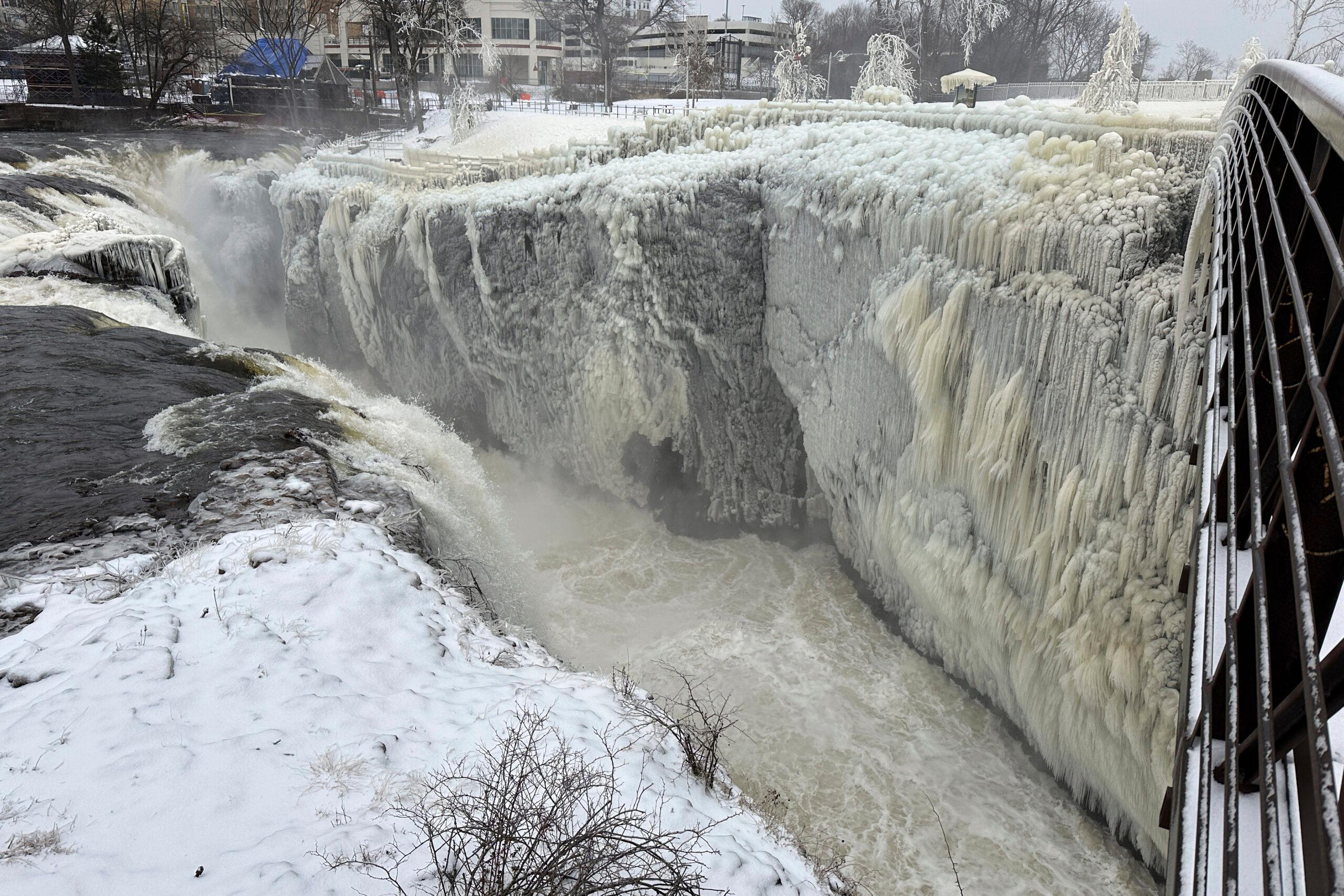
By Claire Rush/AP
Two weeks of storms that have turned roads into icy death traps, frozen people to death from Oregon to Tennessee, and caused power outages that could take weeks to fix continued to sock both coasts with another round of weather chaos on Friday.
The rain, snow, wind, and bitterly cold temperatures have been blamed for at least 50 deaths in the U.S. over the past two weeks as a series of storms moved across the country. Schools and roads have closed and air traffic has been snarled
There is hope. The forecast for next week calls for above-average temperatures across almost the whole country, according to the National Weather Service.
Snow was falling in New York City, Baltimore, and Washington, D.C., on Friday. But the biggest problems remained in places hit hard by storms earlier in the week.
On the West Coast, Oregon's governor declared a statewide emergency Thursday night, nearly a week after the start of a crippling ice storm.
Thousands of residents have been without power since last weekend in parts of Oregon’s Willamette Valley because of the freezing rain.
“We lost power on Saturday, and we were told yesterday that it would be over two weeks before it’s back on,” said Jamie Kenworthy, a real estate broker in Jasper in Lane County.
More than 100,000 customers remained without electricity Friday morning in the state after back-to-back storms, according to poweroutage.us.
Portland Public Schools canceled classes for the fourth straight day amid concerns about icy roads and water damage to buildings, and state offices in Portland were also ordered closed Friday.
Ice was also a problem in the South. Snow and freezing rain added another coat of ice in Tennessee on Thursday. More than 9 inches (22.8 centimeters) of snow has fallen around Nashville since Sunday, nearly twice the yearly average.
Authorities blamed at least 17 deaths on the weather in Tennessee. Several were from traffic wrecks: two men in Washington County were killed when they lost control of their pickup and crashed into an oncoming ambulance.
Exposure to cold was deadly, too. A 25-year-old man was found dead in a mobile home in Lewisburg after a space heater fell over and turned off.
“There was ice on the walls in there,” Marshall County Chief Deputy Bob Johnson said.
A significant drop in blood donations led Chattanooga, Tennessee-based Blood Assurance to recommend that more than 70 hospitals in five states halt elective surgeries until Wednesday to let the organization rebuild its inventory. In a news release Thursday, the group cited the weather and several massive blood transfusions in the previous 24 hours in its plea to the hospitals in Alabama, Georgia, Kentucky, North Carolina and Tennessee.
The cold in Washington state was blamed for five deaths. The people — most of them presumed homeless — died from exposure to cold in just four days last week in Seattle as temperatures plummeted to well below freezing, the medical examiner’s office said.
Two people died from exposure as far south as Louisiana, where temperatures in part of the state stayed below freezing for more than two days.
On Thursday, Will Compton of the nonprofit Open Table Nashville, which helps homeless people, stopped his SUV outside the Country Music Hall of Fame and Museum to hand out warm hats, blankets, protein drinks, and socks as icy rain fell.
“People who are poor and people who are homeless are getting hit the hardest,” Compton said.
Aaron Robison, 62, has been staying at one of Nashville’s warming centers and said the cold wouldn’t have bothered him when he was younger. But now with arthritis in his hip and having to rely on two canes, he needed to get out of the cold.
“Thank God for people helping people on the streets. That’s a blessing,” he said.
On Friday, more bitterly cold air was spilling into the Midwest from Canada. Several states were under an advisory as forecasters warned wind chills dipping to minus 30 degrees Fahrenheit (minus 34 degrees Celsius) could be common through Sunday morning.
Since extreme cold weather set in last week, more than 60 oil spills and other environmental incidents have been reported in North Dakota’s Bakken oil fields. Wind chills dipped as low as minus-70 degrees F (minus 56.6 C) have strained workers and equipment and regulators said the extreme weather strained workers and made accidents more likely.
Lake-enhanced snow finally moved out of Buffalo, New York, late Thursday after burying parts of the city and some suburbs in five feet of snow in five days. The Buffalo Bills renewed their call for snow shovelers Friday, offering $20 an hour for help digging out Highmark Stadium before this Sunday’s divisional playoff game against the Kansas City Chiefs.
The West Virginia Legislature left after a brief session Friday because not enough lawmakers could get through snow-covered highways to the Capitol to vote on bills.
In Washington, D.C., snow fell softly and the streets around the U.S. Capitol were silent. Schools closed again for the second time in a week and the government was on a two-hour delay. President Joe Biden still planned to host mayors from around the country on Friday, though, and was still heading to his Delaware beach home for the weekend.
Associated Press journalists Jonathan Mattise and Kristin M. Hall in Nashville; Adrian Sainz in Memphis; Carolyn Thompson in Buffalo, New York; Colleen Long in Washington, D.C.; and Jeffrey Collins in Columbia South Carolina, contributed.









